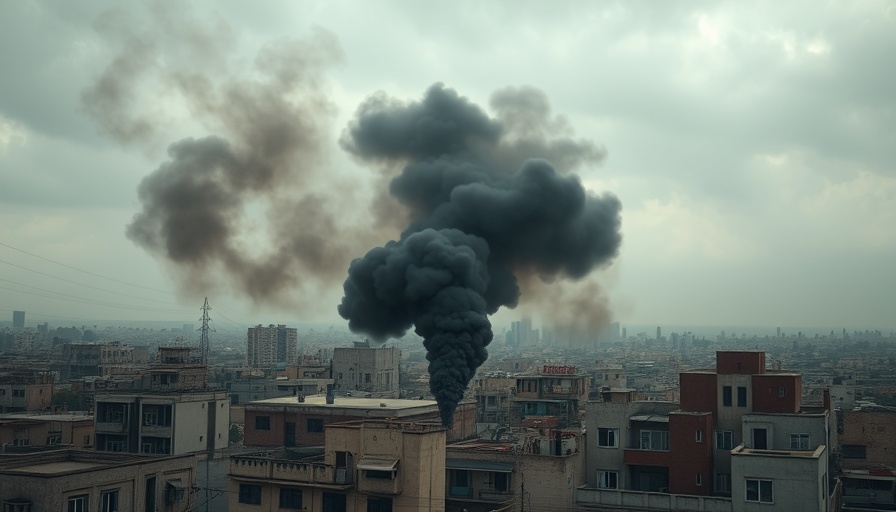
Israel's Strategic Strikes in Yemen: A Global Perspective
On recent reports, Israel conducted airstrikes in Yemen's capital, Sanaa, targeting locations linked to the Iran-backed Houthi militias. This military action highlights its long-standing commitment to combating Iranian influence in the region, while simultaneously raising significant concerns among international observers about potential escalation and repercussions on global stability.
The Bigger Picture: Why Yemen Matters?
Yemen has been embroiled in conflict since 2014 when the Houthi movement seized the capital, effectively leading to a civil war that spiraled the nation into a humanitarian crisis. With rampant poverty and dire humanitarian conditions, the ongoing strife showcases the complex interplay of local and international forces. Israel's current military involvement underlines the strategic importance of Yemen, particularly its proximity to Saudi Arabia and critical maritime routes in the Red Sea.
Reactions from the International Community
The airstrikes have elicited a range of reactions worldwide. While Israel defends its actions by emphasizing the need to protect its sovereignty from hostile operations, critics argue that such actions risk further destabilizing an already fragile region. Diplomatic channels remain open, with varying opinions on how to handle Iranian interference in Yemen and beyond.
Local Impact: How Yemenis Are Responding
For Yemenis, continuous conflict exacerbates already dire conditions. Civilians, already suffering from years of war, view these airstrikes as another chapter in a lengthy saga of violence and instability. Humanitarian organizations urge caution and call for a focus on peaceful resolutions that prioritize the safety and well-being of the Yemeni people over geopolitical maneuvering.
Economic Ramifications: Global Markets and Investments
The ongoing conflict, especially military actions like the recent Israeli strikes, can ripple through global markets. Investors may wonder how these events might influence sectors like energy and commodities. Historically, political instability in the Middle East leads to fluctuations in oil prices. For investors, understanding these dynamics is crucial in crafting strategies that withstand market volatility.
Is This the Start of Broader Military Engagements?
“If these conflict escalations continue, we might witness a broader military engagement in the region,” states a geopolitical analyst. Many fear that heightened tensions could provoke responses from allied nations, leading to an intricate network of engagements that would redefine the current landscape of international relations. The U.S., for instance, plays a pivotal role, maintaining a presence in the region that could shift based on unfolding events.
Potential for Future Dialogue
Despite the tension, experts assert that there remains a pathway for dialogue and diplomatic solutions. Conferences aimed at easing tensions and fostering constructive communication between countries involved have been proposed. With the right strategies, a focus on communal solutions rather than aggression might pave the way towards lasting peace.
Conclusion: What This Means for the Future
As nations observe these developments, investment strategies should take into account the interconnected nature of geopolitical events. For seasoned investors, understanding the subtle influences of international military actions on investment avenues, such as energy and commodities, becomes imperative. The situation in Yemen reflects broader themes in global stability, economic performance, and investment risk. Staying informed is crucial for anyone looking to navigate these turbulent waters effectively.
 Add Row
Add Row  Add
Add 



Write A Comment